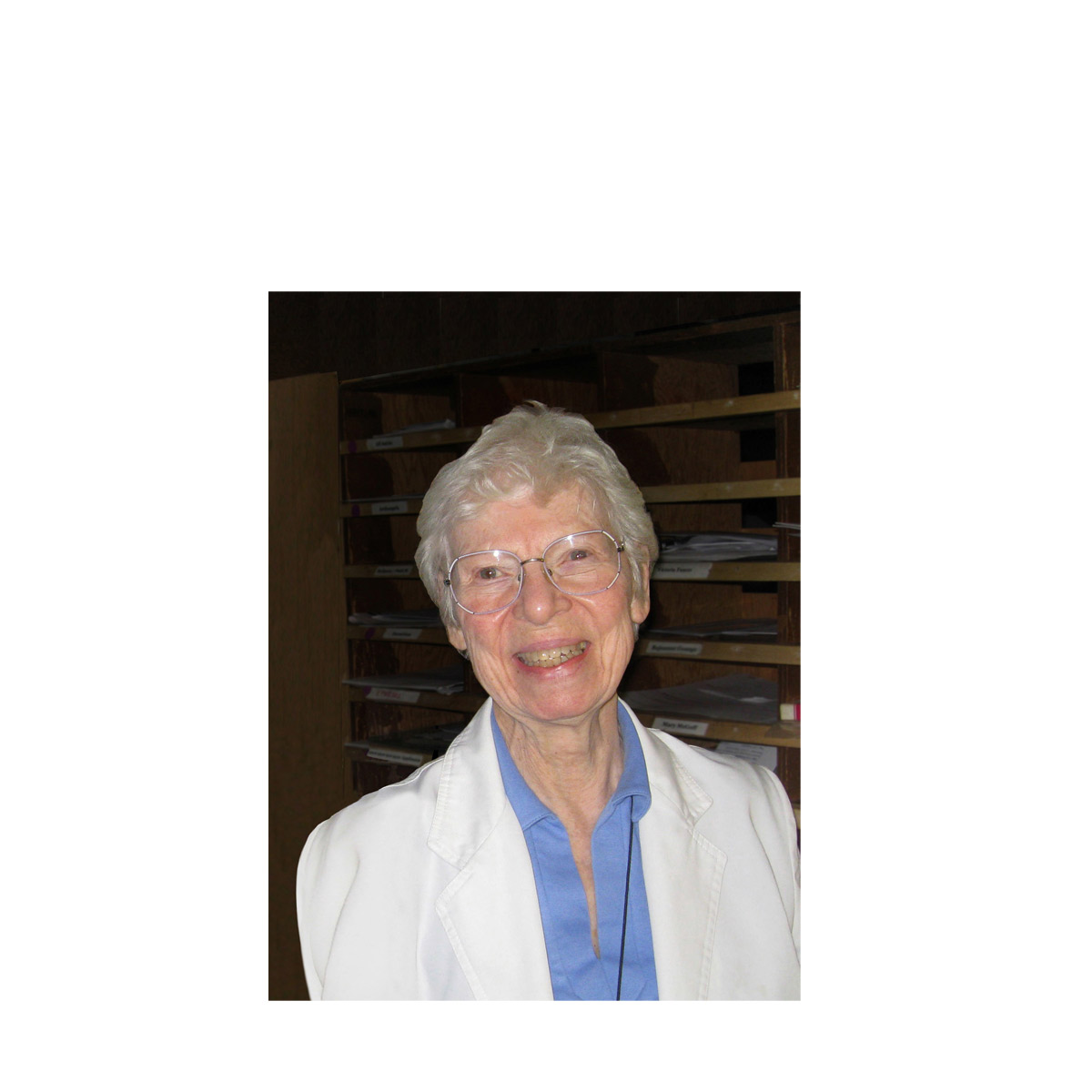This content has been archived. It may no longer be relevant
When Marité Langlois came to Combermere for the first time in 1950, the road we are on was not paved, electricity had yet to come to the village, the original Madonna House was heated with wood, and water was being hauled from a pump outside. It was winter.
She had come at the recommendation of a friend, Margie Conroy, who is now Sister Margie, to Combermere to experience the Baroness Catherine de Hueck Doherty and her work.
Marité was searching and wondering what God wanted her to do with her life. She later wrote about this time:
***
“After spending four years at a secular university and working in the cold, hard business world, I had a feeling that there was so much to be done in the world as far as applying Christian principles in every field—intellectual, political, social. I wanted to do something about it.”
***
Marité came from Montreal. She was raised in Westmount, a section of the city that could only be called prestigious, and had attended the Convent of the Sacred Heart and McGill University.
She had been employed by The Aluminum Company of Canada, British United Press in Canada, and The Government of India Information Services in Washington DC. She was a woman who had what the world calls “good breeding.”
This week I spoke to Mary Davis, who was here when Marité first came. “I never thought she’d stay,” said Mary. “She was the least likely person, I thought, to embrace this vocation.”
“Why did she stay, Mary?”
“I guess she just caught the immensity of the gospel vision that Catherine was presenting to us.”
Stay she did and persevered to celebrate fifty years and then sixty years in Promises according to the Madonna House spirit and mandate. (Marité and Mamie Legris were, in fact, the first persons in the community to celebrate these anniversaries.)
Understandably, Marité’s family was unhappy about her decision to remain in Madonna House. Here are some lines from a letter that she wrote to her mother in 1955, three years after making her First Promises:
***
“When I first came to Madonna House, there were many things that went against the grain … but underlying all the “anti-s” was a growing sense that this was my vocation.
“God has been very good to me, and I can frankly say that such things that at first appeared so alien don’t affect me any longer, and I never feel—never—that my education and refinement are being wasted here.”
“I know I will always be a ‘lady’ in the right sense of the word, Mum, and as for all the good things I have received, I feel sure God will make use of them in the vocation he has called me to. I am at peace and full of gratitude.”
***
So, these were the beginnings of her Madonna House life.
In 1955, Marité began a series of assignments: to Marian Centre Edmonton; as a pioneer in the Catholic Information Centre in Edmonton; as director of training in Combermere; to Winslow, Arizona; and Carriacou, West Indies; and as local director of Madonna House, Victoria, Grenada, West Indies.
In 1971, she returned to Combermere where she remained, except for two short assignments to Madonna House, Moncton, New Brunswick, and Madonna House, Alpena, Michigan. In Combermere, since 1971, Marité worked as the hospitality person and as a secretary in the office of the directors general.
***
I have a personal memory of Marité, which comes to me now. During the years when Marité was on hospitality, that is, giving tours and so forth, here in Combermere, she also did typing and answered the phone while sitting at a little desk in our telephone room.
Over her desk she had pinned two small cards, each with a quotation. They remained there for years, and they tell us a lot about Marité and what she believed.
The first quote was from Thomas Merton:
“Anxiety is inevitable in an age of crisis like ours. Don’t make it worse by deceiving yourself and acting as if you were immune to all inner trepidation. God does not ask you not to feel anxious but to trust in him no matter how you feel.”
May I suggest that Marité never did deceive herself about the fact that she carried a lot of anxiety. It was one of the major crosses of her life. But she did witness to trusting God no matter how she felt. As did many of our pioneering staff, she focussed on loving others without counting the cost while trying not to think about herself.
And what was on the second small card? It should be no surprise to any of the MH staff that it contained a line from the 13th chapter of the Book of Hebrews:
Do not neglect to show hospitality to strangers, for by doing that, some have entertained angels without knowing it (Heb 13:2). A lot of those “angels” might be in this chapel tonight*.
If we were to ask most people here what was Marité’s greatest charism, most certainly the collective answer would be “hospitality.” She gave untiringly of the hospitality, not only of our home but of her heart.
She did not give hospitality because it was her job. She was greatly loved in Edmonton because she loved. She was greatly loved in the West Indies because she loved. Marité’s welcome went far beyond any of her natural extroversion, because it was about real love. She loved from her own wounded heart.
She gave you her interest in you. She gave you her joy. She gave you her compassion. She welcomed each person as Christ. Most of us here tonight have received this love, not once, but many times. I think I can say for all of us, “thank you for your love, Marité, dear sister.”
*This is the eulogy from Marité’s wake service.





